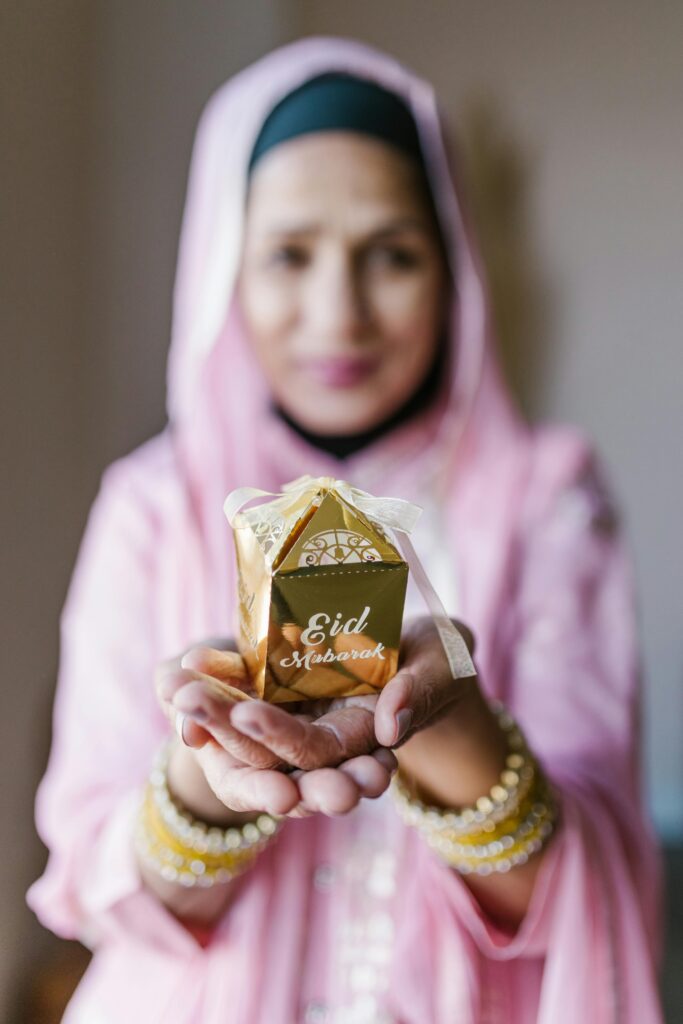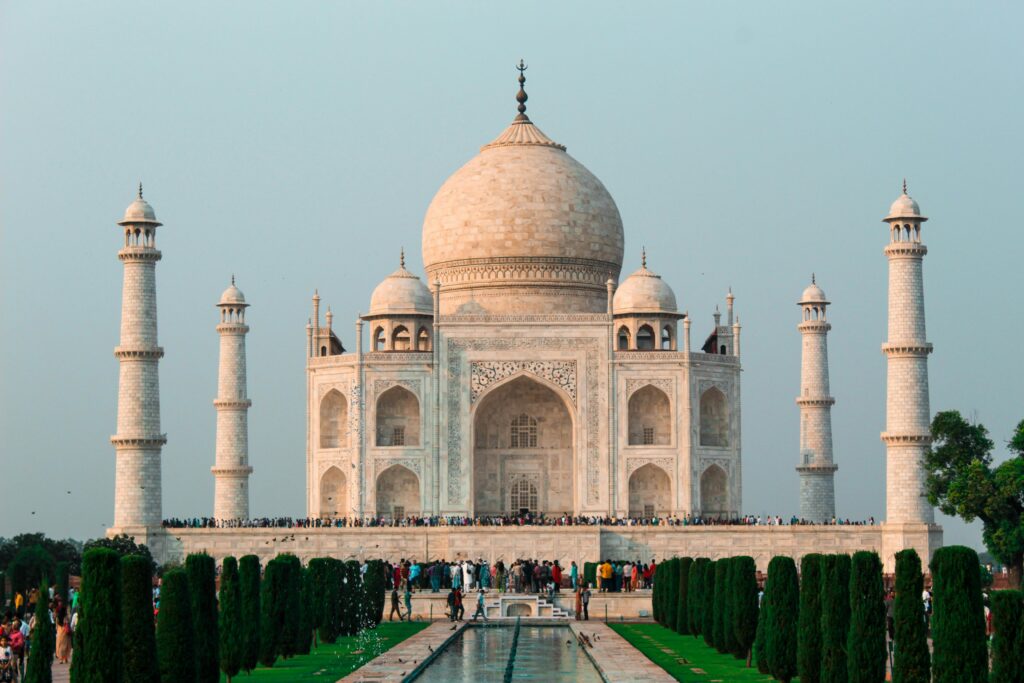Eid ul-Fitr, or the Feast of Breaking the Fast, is the festival that commemorates the end of the holy month of Ramadan. It is a day of celebration that Muslims all over the globe celebrate with utmost fervor and devotion. This festival is not only a time for festivities but also for thanksgiving, charity, and family and community bonding. Preparations for Eid ul-Fitr begin weeks before the actual day, as Muslims prepare themselves to welcome this sacred day in a mood of happiness and spirituality.
Spiritual and Charitable Preparations
The charm of Eid ul-Fitr is spiritual. Eid ul-Fitr is a day of thanksgiving when individuals thank Allah for having blessed them with means to spend Ramadan sincerely and earnestly. Maybe the most significant preparation for Eid is the giving of Zakat al-Fitr, an obligatory charity donated before the Eid prayer. This charitable act provides the poor with the means to celebrate too, which in turn provides them with the sentiments of sympathy and social responsibility, two values that last in Islam.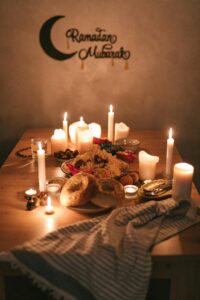
Muslims also undertake additional acts of worship during the last ten days of Ramadan, seeking forgiveness, praying for their desires, and spiritually preparing themselves for the festivity festival. Some practice itikaf (remaining at the mosque) in order to give themselves fully to prayer and supplication. The night of Eid, which is Chaand Raat, is a special night, when families gather to witness the moon sight, signaling the arrival of Eid.
Shopping and Festival Arrangements
One of the most exciting experiences of Eid preparation is buying new clothes, gifts, and decorations for the home. Bazaars and shopping malls are filled with activity as people buy traditional and trendy clothes to adorn on Eid day. Women and girls also get henna applied on hands, something which adds to the celebratory atmosphere. Changes such as bangles, decorations, and perfumes are also purchased as a part of celebrations.
Home decor is another crucial aspect of Eid preparations. Most homes are cleaned and festively decorated using holiday lights, flowers, and other decorative items to make the home welcoming and festive. Delicately placed settings are laid out on the dining table for Eid food because friends and members of the family gather to enjoy the food and celebrate.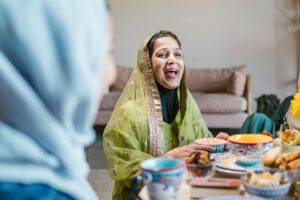
Culinary Delights and Feasting
Food takes center stage during Eid ul-Fitr celebrations. A variety of mouth-watering dishes are prepared by families, including sheer khurma (vermicelli pudding sweet), biryani, kebabs, and a host of traditional sweets. A light breakfast of dates typically begins Eid morning, followed by attending the special Eid prayer at the mosque. After prayer, families head out to meet relatives, exchange presents, and break their fasts together.
Strengthening Bonds and Spreading Joy
Eid ul-Fitr is a time of love and joy. It is one of the biggest traditions to reunite relatives, friends, and neighbors. During the time, other Muslims also make use of the opportunity to reach out to the poor by giving food, clothing, and money to the poor. This reinforces the social solidarity and cohesion which is the core of Islamic teachings.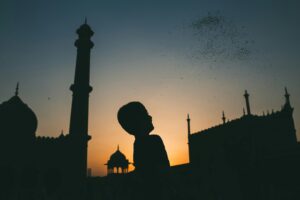
Conclusion
Eid ul-Fitr is a spiritual holiday, a gesture of thanksgiving, and union. The doings of the day reveal to us the fun and uninhibitedness of Muslims saying goodbye to Ramadan and bringing in a day of celebration and blessings. From acts of charity, festive purchases, to hearty congregations, Eid brings together people in a love fest of kindness, sympathy, and unity. Accept, Allah, our Ramadan commitment and bless us with many more Eids of peace and prosperity. Ameen.

